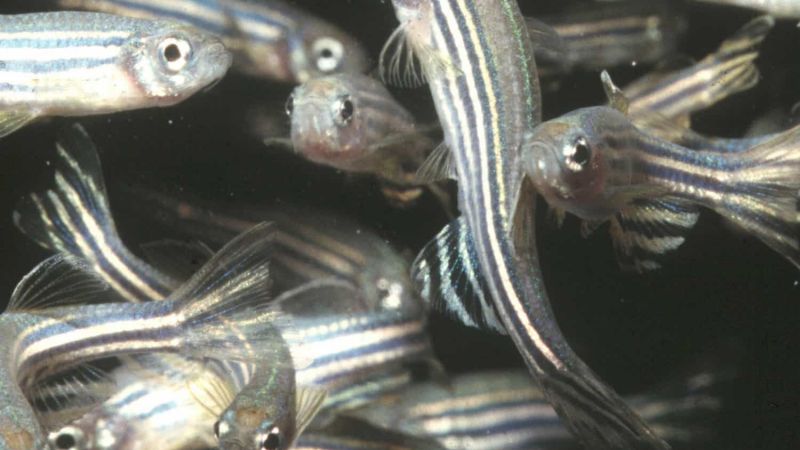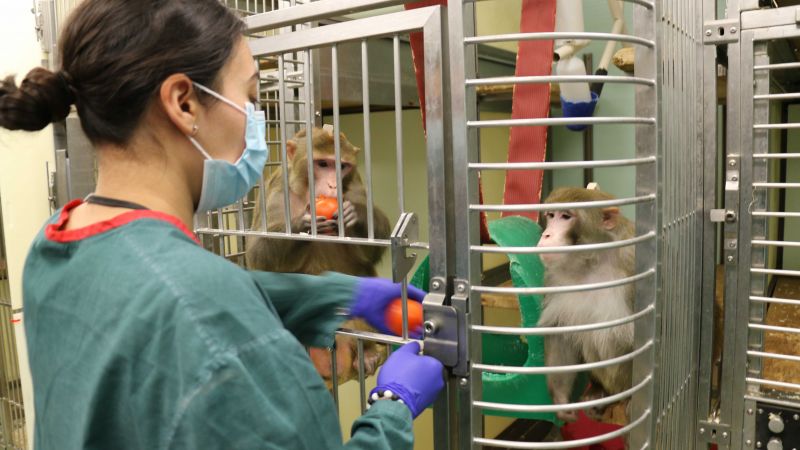
 The Biomedical Animal Research News (BARN) Digest collates animal research news from UAR’s 150+ member organisations into one, easy to access, feed. These animal research related stories include topics such as: medical studies and advancements; animal welfare and 3Rs news; funding, regulatory, and policy news; and conservation and environmental research that involves animal testing.
The Biomedical Animal Research News (BARN) Digest collates animal research news from UAR’s 150+ member organisations into one, easy to access, feed. These animal research related stories include topics such as: medical studies and advancements; animal welfare and 3Rs news; funding, regulatory, and policy news; and conservation and environmental research that involves animal testing.
Each week, we pick the most interesting, groundbreaking, and important news to feature in a weekly news roundup. In this round up we feature news stories from 1 - 7 May 2025.
View BARN to see daily news updates from UAR members.
BASIC RESEARCH
Scientists rewrite textbooks on how cells divide
UNIVERSITY OF MANCHESTER, WELLCOME | ZEBRAFISH EMBRYOS, HUMAN CELLS
"Scientists from The University of Manchester have changed our understanding of how cells in living organisms divide, which could revise what students are taught at school... The scientists used real time imaging to study the formation of blood vessels in 1-day old transparent zebrafish embryos... The team also used a technique using human cells called micropatterning."
https://www.manchester.ac.uk/about/news/scientists-rewrite-textbooks-on-how-cells-divide/
Origins of common lung cancer that affects smokers discovered
UCL, UNIVERSITY OF CAMBRIDGE, WELLCOME SANGER INSTITUTE | MICE, HUMANS
"The ‘cell of origin’ of the second most common lung cancer and the way that it becomes dominant in the lung have been discovered, in a new study in mice and humans... The study, published in Science, found that a population of basal cells found in the trachea (windpipe) outcompetes other cell types and becomes dominant, eventually invading and occupying large areas of the lung"
https://www.ucl.ac.uk/news/2025/may/origins-common-lung-cancer-affects-smokers-discovered
Breakthrough uses artificial intelligence to identify different brain cells in action
UCL | MICE, MONKEYS
"In a new study, published in Cell, the research team have overcome this problem by identifying the distinct ‘electrical signatures’ of different neuron types in the mouse brain, using brief pulses of blue light to trigger spikes in specific cell types (a method called optogenetics).
They created a library of the different electrical signatures for each type of neuron, which then allowed them to train an AI algorithm that can automatically recognise five different types of neurons with 95% accuracy without further need for genetic tools. The algorithm was also validated on brain recording data from monkeys."
https://www.ucl.ac.uk/news/2025/may/origins-common-lung-cancer-affects-smokers-discovered
Invasive rats and rainforest mammals are sharing gut microbes as urban areas grow
SWANSEA UNIVERSITY | SMALL MAMMALS
"Working with international collaborators, the team discovered the black rat (Rattus rattus), an invasive species commonly found in cities and towns, had a gut microbiome more similar to the native rainforest rat (Sundamys muelleri)—the only local species to have successfully adapted to urban life—than to its close invasive relative, the Norway rat (Rattus norvegicus).
Ms Giacomini said: “Our findings suggest that shared environmental use can drive microbiome similarity as much or even more than the genetic relatedness of host species."
DRUG DEVELOPMENT
Gene therapy offers potential to extend lives of children with rare immune disorder
UCL | THERAPY RELIED ON ANIMAL STUDIES
"An investigational gene therapy has successfully restored immune function in all nine children treated with the rare and life-threatening immune disorder called severe leukocyte adhesion deficiency-I, or LAD-I, in an international clinical trial co-led by UCL."
New hope for patients with aggressive asbestos-linked cancer as trial shows a targeted cancer treatment can improve survival
UNIVERSITY OF LEICESTER | TREATMENT RELIED ON ANIMAL STUDIES
"Researchers have shown for the first time that a drug that prevents cancer cells from repairing can control the growth of mesothelioma, a rare and aggressive form of cancer caused by asbestos."
https://le.ac.uk/news/2025/april/asbestos-cancer-nero-leicester-fennell
New research aims to transform treatments of aggressive blood cancer
UNIVERSITY OF YORK | BASED ON RESEARCH IN ANIMALS
"The study will build on previous proof of concept work [mouse studies] and focus on creating treatments targeting the most important types of cancer cells that are easier for patients to handle. The goal is to develop oral treatments that patients can take at home, reducing hospital visits, and for the elderly to improve their overall fitness and get them home earlier. "
https://www.york.ac.uk/news-and-events/news/2025/research/blood-research-centre/
New immunotherapy trial for older colon cancer patients
UNIVERSITY OF LEEDS | THERAPY RELIED ON ANIMAL STUDIES
"Elderly colon cancer patients are being given the chance to access a clinical trial led by the University of Leeds that could transform future practice. Individuals with a specific type of tumour will receive an immunotherapy drug called dostarlimab before surgery, rather than the standard procedure where surgery is carried out first, then sometimes followed up by chemotherapy. "
NON-ANIMAL RESEARCH METHODS (NAMS AND NATS)
Can New Approach Methodologies De-Risk Drug Development?
CHARLES RIVER EUREKA BLOG | NAMS
"Automation platforms that improve reproducibility and robustness are key factors for accelerating alternative method adoption in drug development, also making them scalable for drug discovery. There are already case studies that showcase replacement of animal models. For example, nanoparticle-based lung cancer therapies were evaluated in a lung-on-a-chip model, demonstrating feasibility of high-throughput non-animal drug screening. But a study on 3D liver organoids pointed at the limited stability of the in vitro culture not representing all relevant liver cell types. Both present hurdles in using these systems for long-term, repetitive hepatotoxicity screening."
https://www.criver.com/eureka/can-new-approach-methodologies-de-risk-drug-development
Visit BARN for daily news updates
Last edited: 20 October 2025 13:22



